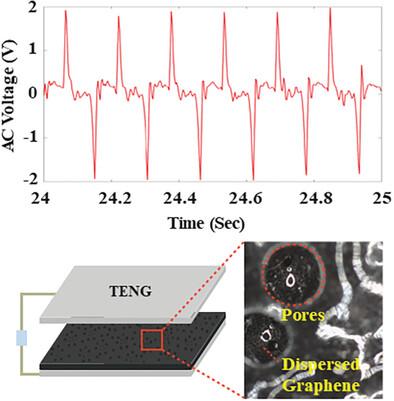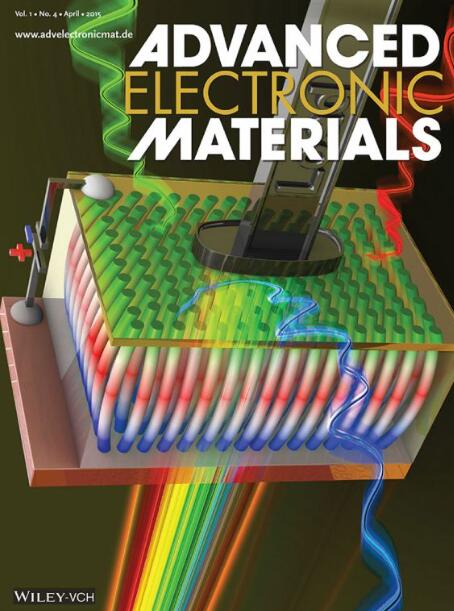Machine Learning‐Driven Surrogate Modeling for Optimization of Triboelectric Nanogenerator Design Parameters
IF 5.3
2区 材料科学
Q2 MATERIALS SCIENCE, MULTIDISCIPLINARY
引用次数: 0
Abstract
Triboelectric nanogenerators (TENGs) offer a promising solution for energy harvesting in wearable devices and sensors. However, their energy output is dependent on process parameters and should be optimized to maximize performance. Due to the absence of effective analytical models for TENG systems, the complex relationship among these variables and the effect of these variables cannot be easily boiled down into a conventional theoretical framework. To address this problem, this study takes four process parameters such as thickness, pore ratio, applied force, and frequency into account and leverages advanced design methods (e.g., Design of Experiment) and machine learning‐based regression models to systematically explore the design space. A contact‐separation TENG has been designed that includes a tribonegative porous layer of graphene nanoplatelets (GNP) dispersed into polydimethylsiloxane (PDMS) matrix and aluminum as the tribopositive material. Several experiments are conducted to train a support vector regressor (SVR) model, validate the predicted performance, and refine the design that can be further used to obtain an optimized TENG design.

求助全文
约1分钟内获得全文
求助全文
来源期刊

Advanced Electronic Materials
NANOSCIENCE & NANOTECHNOLOGYMATERIALS SCIE-MATERIALS SCIENCE, MULTIDISCIPLINARY
CiteScore
11.00
自引率
3.20%
发文量
433
期刊介绍:
Advanced Electronic Materials is an interdisciplinary forum for peer-reviewed, high-quality, high-impact research in the fields of materials science, physics, and engineering of electronic and magnetic materials. It includes research on physics and physical properties of electronic and magnetic materials, spintronics, electronics, device physics and engineering, micro- and nano-electromechanical systems, and organic electronics, in addition to fundamental research.
 求助内容:
求助内容: 应助结果提醒方式:
应助结果提醒方式:


